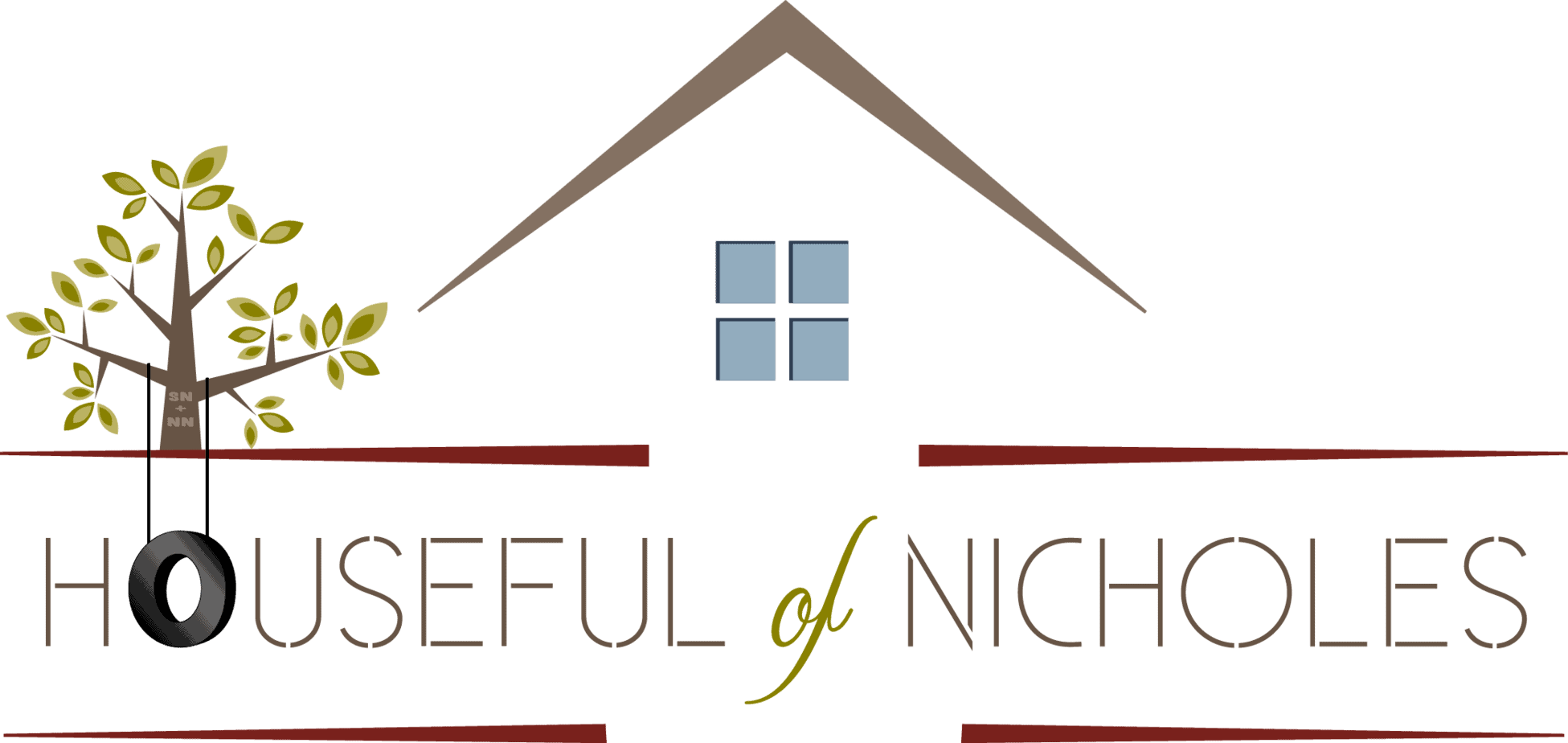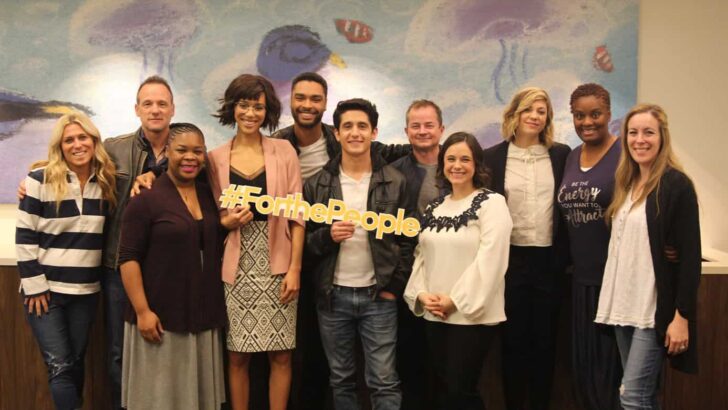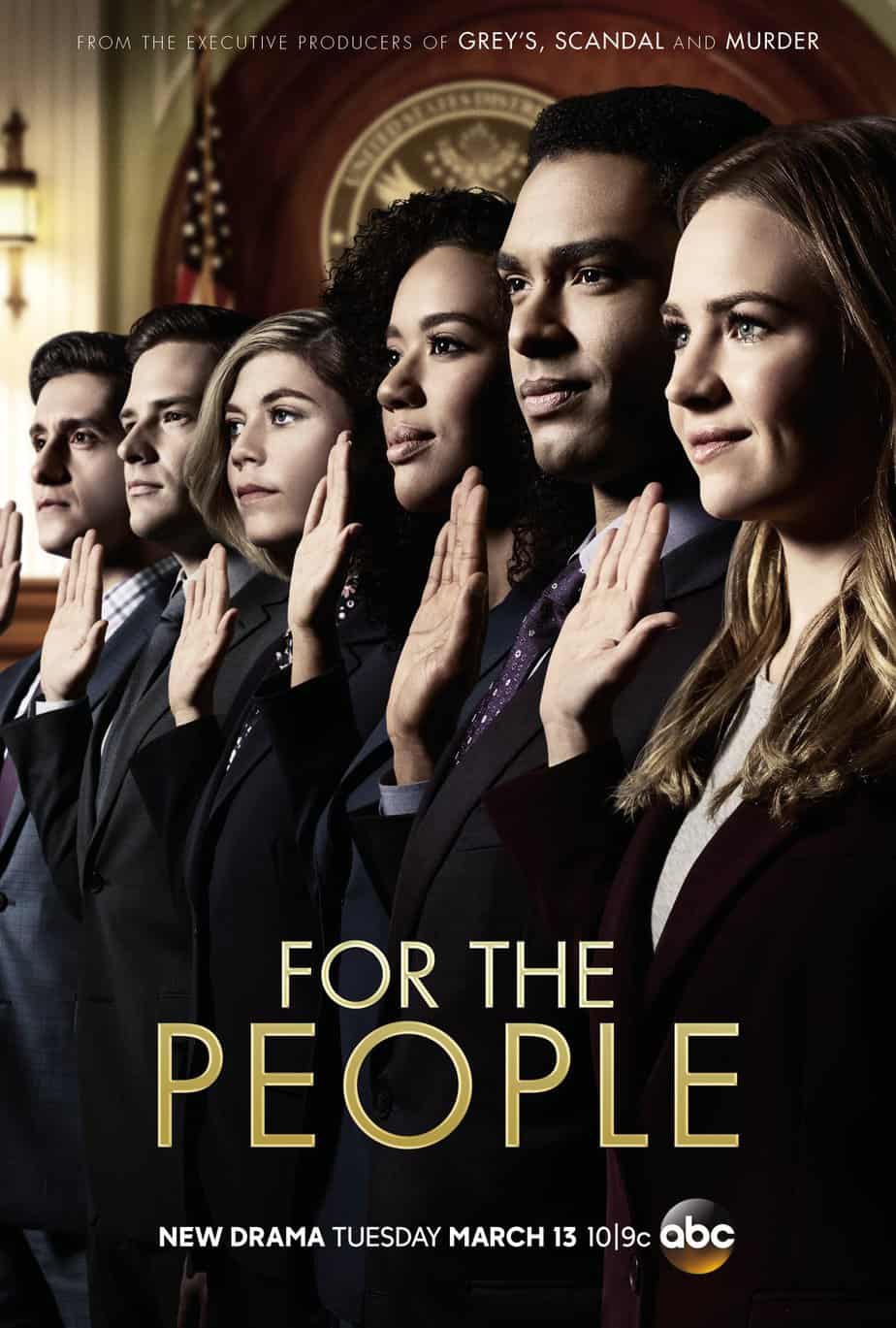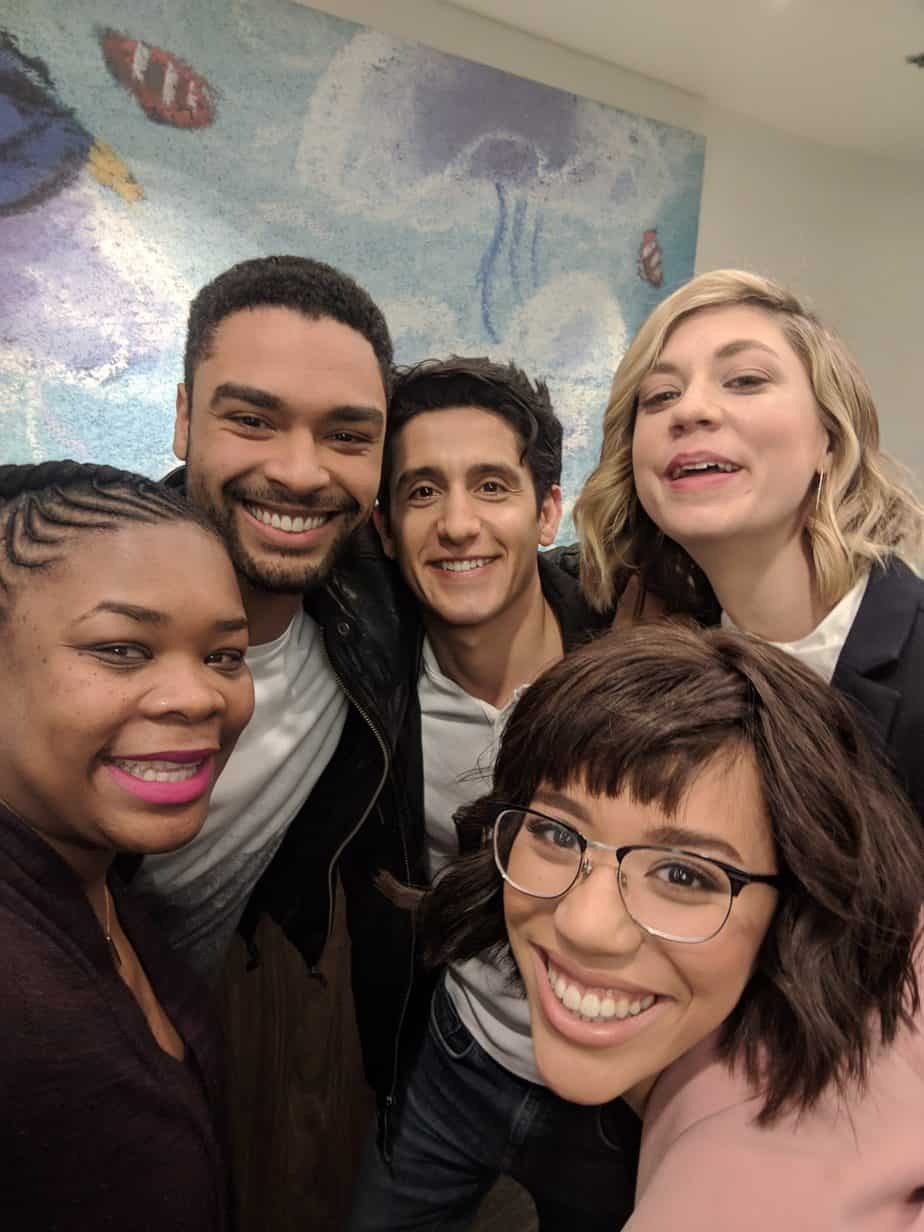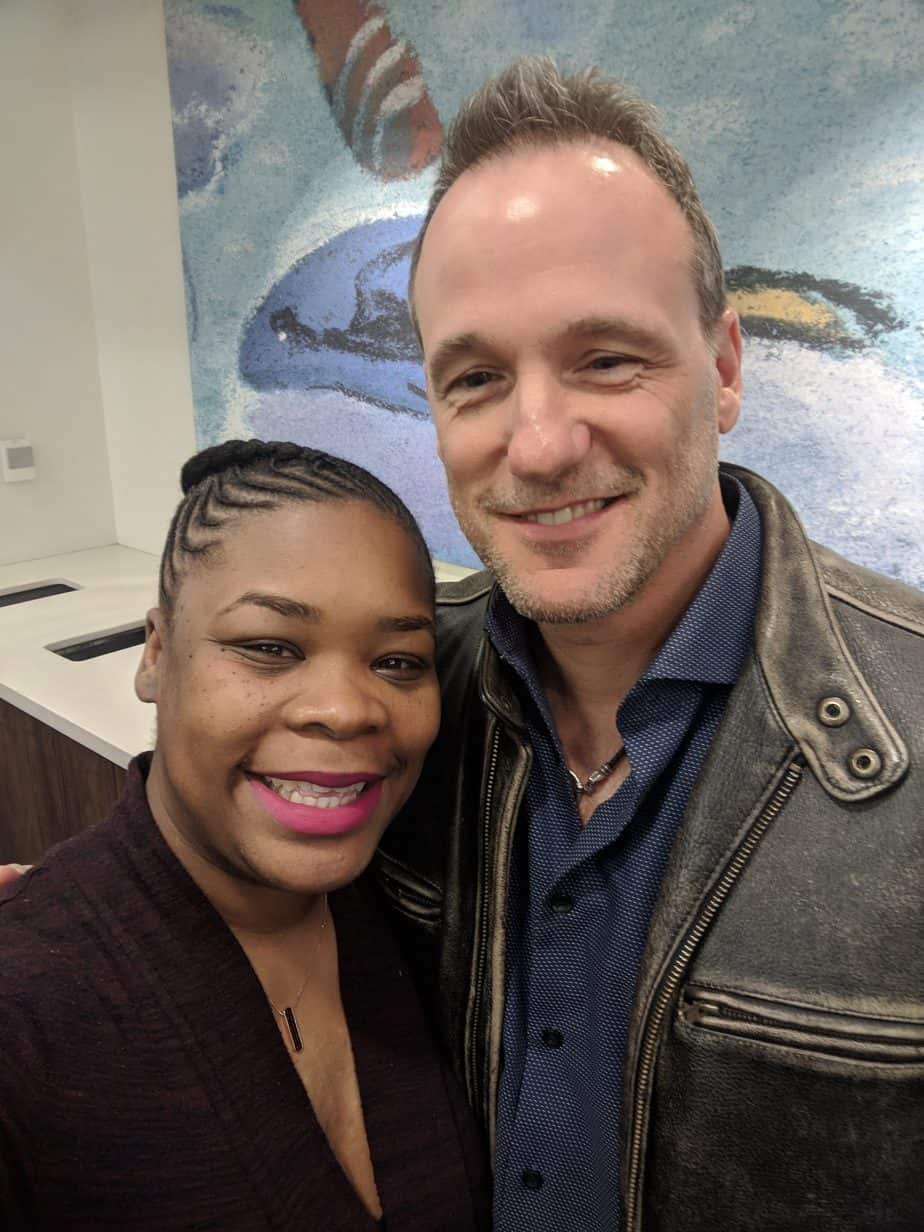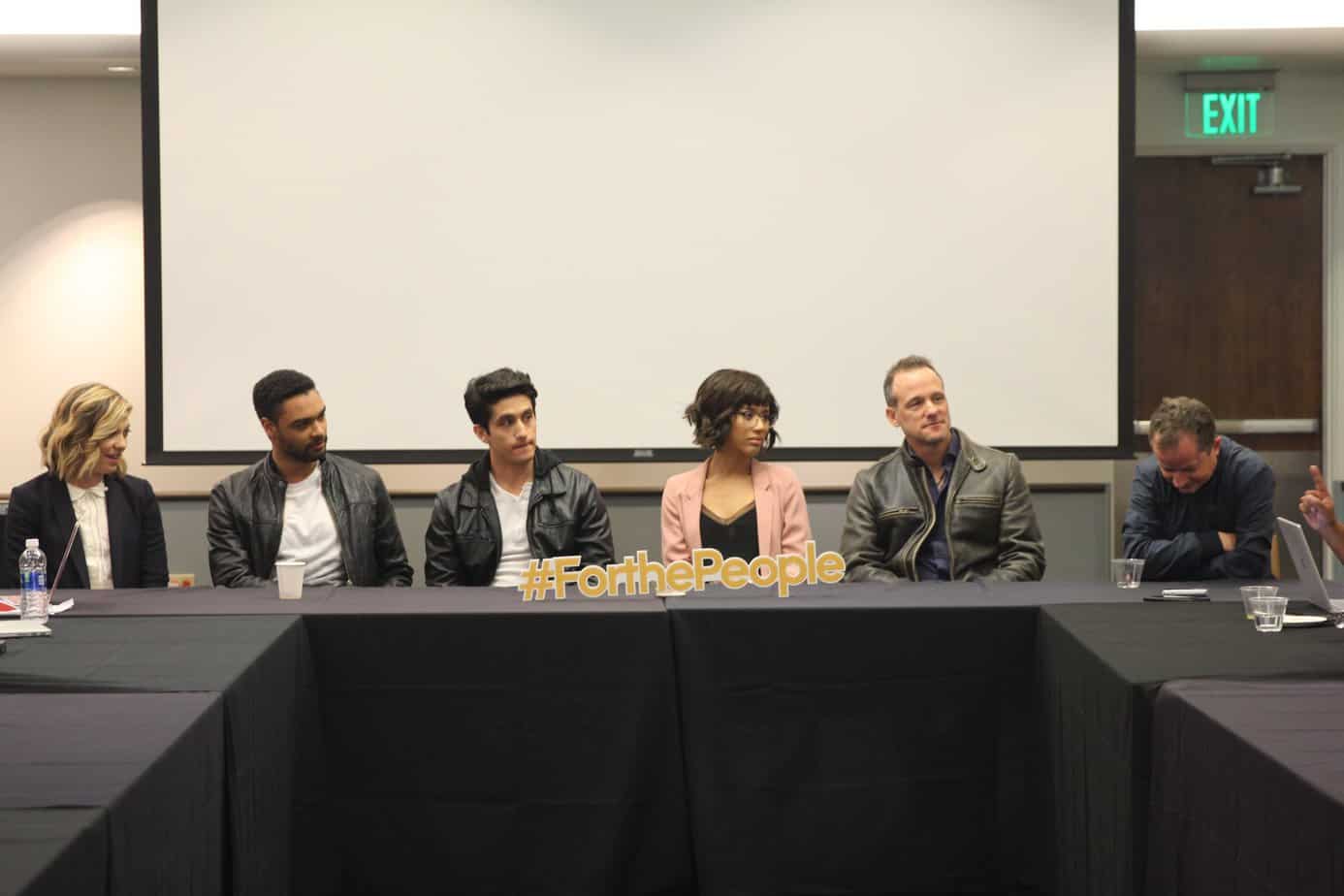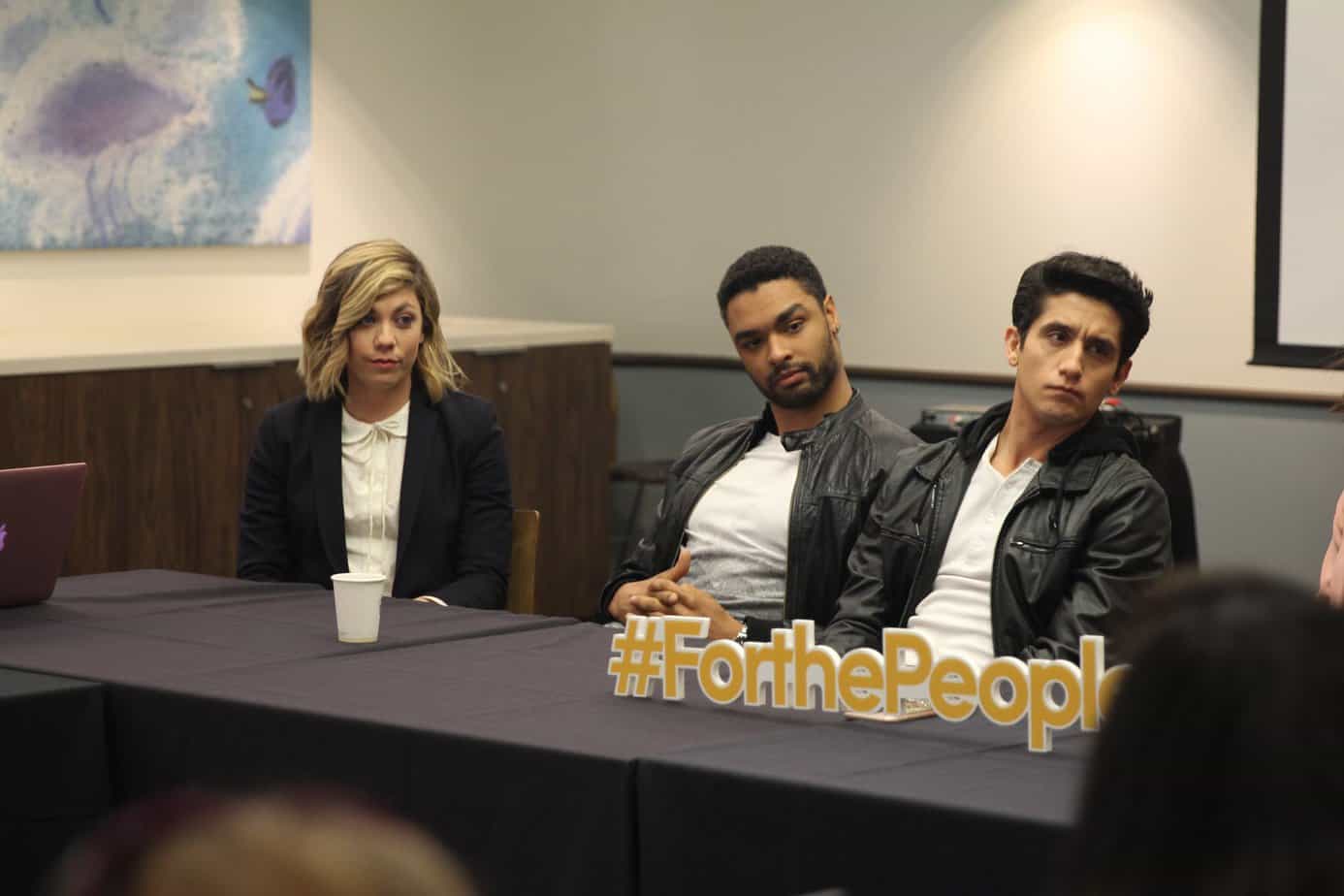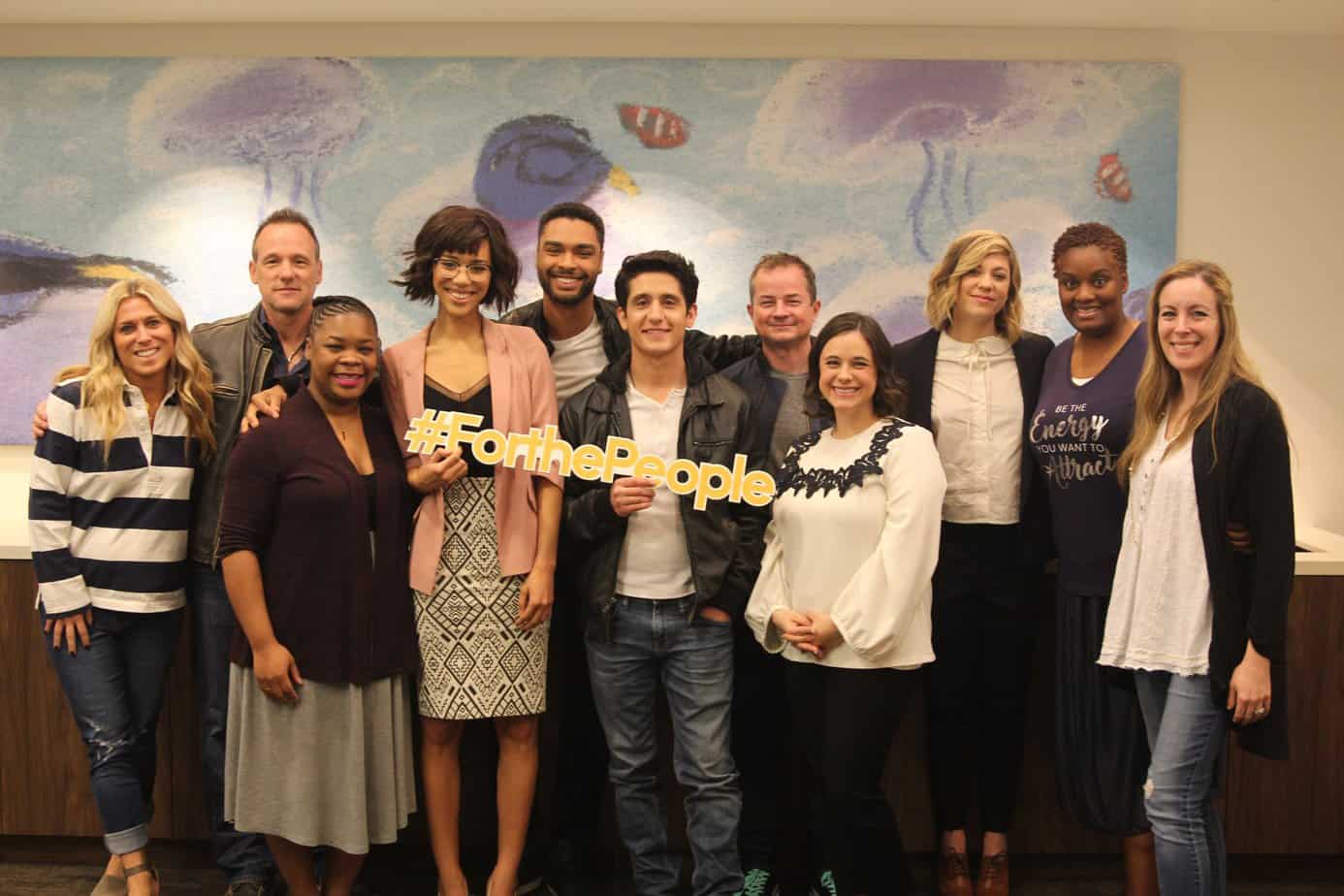I'll explain that cold open in a minute, but let me say this. I've been enjoying the amount of television that I've been watching lately because it's been holding my attention. That's hard to do. ABC certainly has some great content coming out, and For the People is no exception. We got to interview four of the cast members, and the executive producers during our time in Los Angeles last month, and I'm sharing a bit of what we learned. Today is an important day, because it's airing at 10|9 c and you want to be prepared to watch it. Right?
But let me drop this cute photo off first, because it's cute. I'm being super professional and grabbing a selfie (they asked - I obliged - or maybe it was the other way around) with For the People cast members - Regé-Jean Page, Wesam Kash, Susannah Flood, and Jasmin Savoy Brown. They play young lawyers on opposite sides of the courtroom, and by the end of the first episode your loyalties may be divided as well.
At one point during the interview, Page was trying to inform us about the amazing capabilities of his castmate, Anna Deavere Smith - who is indeed phenomenal - and he exclaimed "Oh my giddy aunt!" I heard it as "Oh my Gideon!" and now we're besties. First Oprah, now Regé-Jean Page.
Summary
Set in the United States District Court for the Southern District of New York (a.k.a. “The Mother Court”), the new Shondaland series show follows six talented young lawyers working on opposite sides of the law and handling the most high-profile and high-stakes federal cases in the country.
Best friends Sandra Bell (Britt Robertson) and Allison Adams (Jasmin Savoy Brown) serve as public defenders alongside Jay Simmons (Wesam Keesh) and their boss, Federal Public Defender Jill Carlan (Hope Davis). They face off against prosecutors Seth Oliver (Ben Rappaport), Leonard Knox (Regé-Jean Page), Kate Littlejohn (Susannah Flood) and their supervisor, chief of the Criminal Division in the U.S. Attorney’s Office, Roger Gunn (Ben Shenkman). Our lawyers are joined by Judge Nicholas Byrne (Vondie Curtis-Hall), who rules on some of the court’s most controversial cases, and Tina Krissman (Anna Deavere Smith), the formidable clerk of Court who keeps everyone in line.
These young lawyers will be put to the test both personally and professionally as their lives intersect in and out of America’s most prestigious trial court.
“For The People” stars Britt Robertson as Sandra Bell, Jasmin Savoy Brown as Allison Adams, Ben Rappaport as Seth Oliver, Susannah Flood as Kate Littlejohn, Wesam Keesh as Jay Simmons, Regé-Jean Page as Leonard Knox, Ben Shenkman as Roger Gunn, Hope Davis as Jill Carlan, Vondie Curtis-Hall as Judge Nicholas Byrne and Anna Deavere Smith as Tina Krissman.
The series from ABC Studios is created by Shondaland’s Paul William Davies, who executive produces alongside Shonda Rhimes, Betsy Beers and Tom Verica.
You might recognize Tom Verica's name from How to Get Away with Murder since he played husband to title star Viola Davis. It legit took me the entire interview to realize that, and I'm sure if he would have noticed how hard I was trying not to stare at him during the interview, things may have gotten a little weird. But here we go - here's what we've found out, and what I can share with you!
How did the idea come to pass?
Paul William Davies - creator and former lawyer answers here:
One of them was a show set in the Southern District of New York the Mother Court, which in legal circles is kind of the, as the judge says at the opening of the show, it's the highest kind of most- the highest profile most prestigious trial court in the United States. I thought a show set in that court with the kinds of cases that come out of that court and the lawyers that work in that court could be really interesting. I also wanted to do something that showed the
perspective of both sides. And not like in a formulaic way but just kind of in a way that you got a richer sense of how the law works and how justice is made in America.
So, I thought having that dual perspective could be an interesting new way to approach a legal show. So I brought those ideas to Shonda and we talked them through and ended up combining those two ideas into what has become this show, and that's how it got started.
Yeah a little bit. I've been to the Mother Court. No I was a lawyer, I still am a lawyer since I pay my bar dues, but was a practicing lawyer for years.
I worked for a large law firm, I didn't do the kind of noble work that these people do. But I do have a background in the law and some of my friends that I went to law school with are actually consultants on the show. So I've been able to draw off both from my own experience and then people who I've worked with and gone to law school with.
Is anyone outside of the creator experienced in law?
Wesam: I actually did shadow a public defender at the L.A. courthouse and that was an amazing experience, just what the public defenders have to deal with within a few hours, from like a bicycle theft case to a sexual assault case to somebody showing up for their prison sentence, to a juvenile trying to not get jail time. So they have to deal with a lot and yeah it was very eye-opening, there's a lot of dark humor behind the scenes which, you know, plays into it.
Jasmin: A great person to answer that question would be Susannah (who hadn't arrived just yet). She's brilliant and has done all of the research and she became my library and told me what books to read. All of that, yeah, she's great with research and understanding the law and helping educate the rest of the cast. But like Wesam, I also have a public defender that I Skype with who’s in New York and that's invaluable. Even just while we're Skyping she got like five calls in half an hour and just understanding the nature of what that actually looks like and her critiquing the show just from the trailer.
Regé: I mean I got into contact with a couple of folks in this city and kind of went down to, I went to court in Compton, which is in experience. And I didn't know before I started working this that everyone has the right to go and just watch justice be done, like you can turn up and watch a case with very-very few exceptions which is incredible because it is so important for justice not just to be done but to be seen to be done.
Being in that environment, in a courthouse environment and feeling people work at an incredibly high level, with people’s lives in their hands every single day is an extraordinary thing and something you kind of need to feel palpably before you can kind of take it on. Just the fact they walk into this courtroom every day, real people’s lives incredibly intricate complicated stories. And you have to boil that down and deliver it to jury with all the technicalities involved
and essentially either save lives or not and with ten other cases on your back and five calls coming in every ten minutes.
And just kind of seeing people work in that kind of rhythm is both inspiring and a responsibility because you then have to represent that in its best light. I noticed Paul confessing to being a lawyer over there, which I found very interesting. So maybe if we do this right we can go to in some ways kind of rehabilitating lawyers as people who run what is possibly the most important institution in this country, the justice system. It should be something that's on
our side at all times, even though it doesn't feel like it is. And so hopefully people won’t have to confess to being lawyers.
PWD: No it's a really good point, I mean, this was another thing that kind of went into the mix of thoughts that I had in creating the show is, and studies have borne this out. Really the only category of lawyers that are truly happy in their jobs are public defenders and prosecutors. They tend to have the like by a wide margin highest career satisfaction among attorneys who generally have a very disturbingly low career satisfaction number.
But public defenders and prosecutors stand out because they actually are doing real things and are really invested and engaged in their jobs. And so I really wanted to show law in a light that was different from the ways I experienced it and most of the people who I went to law school with experienced it, which was either the drudgery of a big firm or they stopped, they quit. It's generally an unhappy lot but this is the exception and this show is a little bit, more than a little bit, it's aspirational that way. I think it resonates even more the idea that the work that these people do on both sides is important and the integrity of
the system is important.
Were any moments too intense to film?
RJP: I don't know if too intense is the right word for me, I feel very connected with the writing in the show. A lot of that credit goes to Paul. And it's to say the very least, it's exceptionally good. And as you watch the show, especially my character, it is very closely connected with a very similar background where I come from. So the writing connected with my emotions to like my family and the future is just there. And so I guess intense is a, you know, accurate word, yeah.
RJP:I think Paul and his team have a gift for kind of making sure that they touch on the personal whilst you're dealing with very large themes, and I think that very much comes through this. Certainly one case that I dealt with where I kind of needed to detox my brain for a couple of days afterwards, because they threw me a real heavy curveball. And that was again inspired, certainly drew some very close parallels to some real events. And you're reminded
that whilst we often keep it on a light tone, these are incredibly important things that we deal with.
Sometimes the world is a little bit dark and you need protection from that and you need people to kind of be torch bearers in that world on both sides, in the prosecution and the defense. And so there are times when yeah the weight of the thing can get very-very intense, but I also think that's one of the gifts that this team has is in managing that tone and presenting the real world in its lightness and its darkness as a complete package that you can digest and take on and grow from.
What are the redeeming qualities of their characters?
When you view the first episode - you might be quick to side with the defense attorneys unless you have no heart, because then you'll love the prosecutors. However, you may flip before the pilot is done and you'll wonder how that happened.
RJP: I think that there's an absolute determination to do their jobs right and defend people, whether they're prosecuting or defending, and I think certainly I would say that for Leonard and I would offer that for the other characters but I can't speak for anyone else but that would be the one thing I’d offer. It's a determination to defend.
SF: I want to address this point about like the humanity that we get to- hinted at by the end of the pilot. And I think that the joy in this season is being able to explore the faults or the ways in which these young people don’t yet know how to do what it is they're responsible for doing.
And so it's like any of us at any moment where we've entered a professional threshold, anyone in this room has entered a professional threshold in their life that is much larger than what they've operated in up to that moment. And you come into it, and you're like thrilled, and you're also like holy ****, you know, how am I going to do this. And you don’t. There's no way for you to know at that moment what you don’t know already. And you have learn by encountering what you don’t already know.
And I think the bravado of all of these characters in the first thirty minutes of the show is really true and appropriate to the actual lawyers in the Southern District. They're all very like they're very New York in that way, they're like Wolf of Wall Street in that way. They're fronting with this kind of ambition that derives from a passion for principle. They're all civil servants, they're not getting paid that much money, they're only in their jobs because of the principle of being in the job.
And so that passion is expressed towards thoroughness in the job and that comes across a certain way but you get to know it a little bit better as you spend more time with it. And I'm really thrilled in my character that like we get to see a woman occupy this space of precision, analysis, thoroughness, and not a kind of emotional space.
For the People premieres tonight on ABC and join us as we tweet it out tonight!
